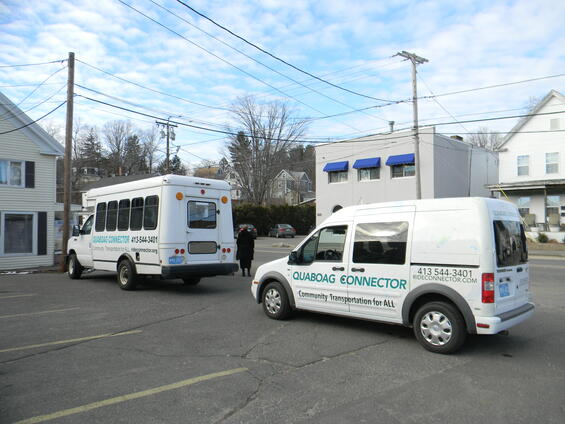What is community transportation coordination?
Many human service agencies provide or contract for transportation for their consumers, but vans may sit idle during part of the day, or run with empty seats. By partnering together, organizations can serve more people, while also improving the efficiency of their transportation programs.
Coordination of transportation can take many different shapes, such as:
- Sharing a vehicle with other organizations in your town or neighboring communities
- Coordinating rides for your consumers on another organization’s vehicle
- Coordinating rides for another agency’s consumers on your vehicle
- Sharing a pool of drivers with another organization
- Having another organization handle dispatch for your vehicles
- Collaborating with another organization on a new service
Coordination in action! Examples from Massachusetts and toolkits for implementation
CrossTown Connect member towns in the Acton area jointly share one full-day scheduler for their Council on Aging van services instead of each paying a part-time person. As a result, riders gain more flexibility in making reservations, and the towns plan more efficient routes, increasing capacity. CrossTown Connect's approach to coordination was featured on a national mobility management blog.
Vanshare: Youth-serving organizations in Northern Berkshire County developed a vanshare program. Together, they shared a small fleet of vehicles instead of each having their own. This model allowed the organizations to meet their mobility needs at a reduced cost. This partnership lasted 10 years, running from 2007 to 2017. More recently, two organizations in Needham launched a vanshare agreement.
The Quaboag Connector launched in January 2017 thanks to hard work from partner agencies such as the Quaboag Valley Community Development Corporation, Town of Ware, Baystate Wing Hospital Corporation, regional planning agencies, and more. The strong partnership helped the initiative secure public and private funding to operate a new shuttle service in an underserved area on the border between Central and Western Massachusetts.
Travel training partnership: Human service agencies partnered with their local transit authority to launch a travel training program in North Central Massachusetts, which previously had no program for people wanting help learning to ride the bus.
Community Accessing Rides: Organizations in the Attleboro area formed a consortium to help employees and consumers get transportation when the bus was not running. The consortium received grant funding and partnered with Uber. Participating agencies could use grant funds to pay for Uber rides for consumers if no public transit option was available.
Seeding coordination: Berkshire County used a short-term grant to pay Councils on Aging with vans to offer medical transportation to seniors and people with disabilities in neighboring towns without transportation.

Quaboag Connector vans in Ware, Massachusetts
Additional Resources
Get involved
Join a Regional Coordinating Council on community transportation to connect with other stakeholders in your region who may be interested in partnering.
Learn about ongoing coordination initiatives through the MassMobility newsletter.
Local tools: Coordinated Human Service Transportation Plans
Developed by Regional Planning Agencies, Coordinated Human Services Transportation (CHST) plans list existing transportation resources, unmet needs, and regional priorities:
National resources and reports on coordinating transportation
National Resources
- Coordinating Council on Access and Mobility federal transportation coordination initiative
- National Center for Mobility Management coordination resources
Reports
- Sharing the Costs of Human Services Transportation. Transit Cooperative Research Program (TCRP), 2011
- Strategies to Increase Coordination of Transportation Services for the Transportation Disadvantaged. TCRP, 2004
- Toolkit for Rural Community Coordinated Transportation Services. TCRP, 2004
- Economic Benefits of Coordinating Human Service Transportation and Transit Services . TCRP, 2003
